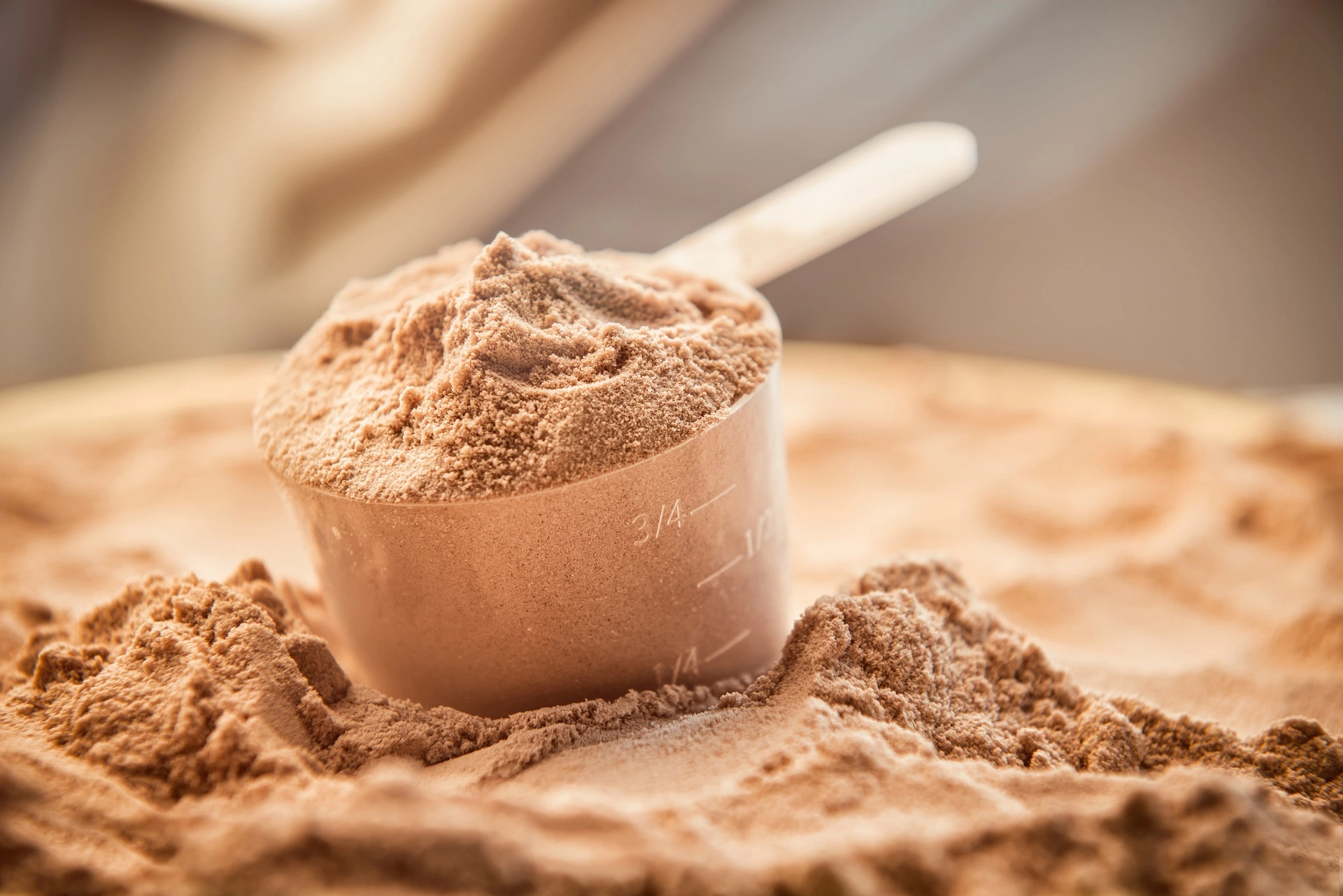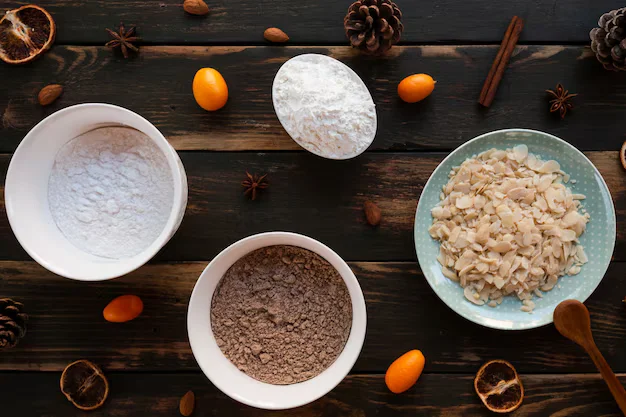Introduction
Protein powders have become a cornerstone of modern diets, helping people achieve their health and fitness goals efficiently. Whether you’re aiming to build muscle, lose weight, or simply ensure you’re getting enough nutrients, the best protein powder can make a big difference. It can be difficult to choose the right option with such a wide range available.
In this article, we’ll walk you through everything you need to know to select the top protein powders for your personal goals, understand the different types of protein powder, and learn how to use them to create healthy protein shakes.
Whole Foods vs. Protein Powders: What’s Better for You?
While whole foods like eggs, chicken, and legumes are excellent sources of protein, protein powders offer a convenient way to meet your daily requirements, especially when you’re on the go. However, it’s important to recognize the differences between whole-food protein and protein powder.
Whole Foods:
- Offer a full spectrum of nutrients, including fiber, vitamins, and minerals.
- Aid digestion and help maintain balanced nutrition.
- Requires more preparation time and may not always be convenient.
Protein Powders:
- Provide a concentrated source of protein with minimal calories and carbs.
- Easily absorbed by the body, especially after workouts.
- Convenient for busy lifestyles or those with increased protein needs.
Pro Tip: Combining both whole foods and healthy protein powder ensures you get the best of both worlds—complete nutrition and convenience.
What Are the Different Types of Protein Powders?
There are many different types of protein powders on the market, each offering unique benefits. Here’s a breakdown to help you choose the right one for your needs:
Whey Protein
Whey protein is the most widely favored type of protein, as it is a complete protein that includes all nine essential amino acids. It is rapidly absorbed, making it perfect for post-exercise recuperation.
- Best for: Muscle growth, weight loss, and those looking for fast-acting protein.
- Varieties: Whey concentrate, isolate, and hydrolysate.
Casein Protein
Slower to digest, casein provides a steady release of amino acids, making it a great option for nighttime use.
- Best for: Muscle repair during sleep and long-lasting satiety.
Soy Protein
A plant-based complete protein rich in amino acids and isoflavones that may support heart health.
- Best for: Vegans and those seeking a dairy-free option.
Pea Protein
High in branched-chain amino acids (BCAAs) and easily digestible, pea protein is hypoallergenic and suitable for sensitive stomachs.
- Best for: Vegans and those with food sensitivities.
Hemp Protein
Packed with fiber, omega-3 and omega-6 fatty acids, and complete protein, hemp protein supports overall health.
- Best for: Individuals looking for healthy protein powder rich in essential fatty acids.
Collagen Protein
This increasingly popular protein is great for joint, skin, and hair health but is not a complete protein on its own.
- Best for: Those focusing on beauty and joint care.
Bonus: Experiment with mixing these types to create customized healthy protein shakes that meet your nutritional needs.
Also read-
Matching Protein Powder to Your Goals and Health Needs
Not all protein powders are created equal, and your health goals will dictate the best choice for you. Let’s explore how different protein powders can support your fitness journey.
For Weight Loss
- Choose low-calorie, low-carb protein powders.
- Look for added fiber to promote satiety and tzermogenic compounds to boost metabolism.
- Avoid high amounts of BCAAs, as they promote muscle growth and may hinder weight loss.
- Top choice: Whey isolate, pea protein.
For Muscle Building
- Opt for protein powders with a high protein content per serving and add BCAAs to aid muscle repair.
- Casein is perfect for overnight muscle recovery.
- Top choice: Whey hydrolysate, whey isolate.
For Vegan/Vegetarian Diets
- Favor plant-based choices such as soy, pea, rice, or hemp protein.
- Remember to check that they contain important vitamins and minerals such as B12 and iron.
- Top choice: Soy protein, hemp protein.
For Diabetics
- Choose low-sugar, low-carb options with natural sweeteners like stevia or monk fruit.
- Powders with added fiber can help control blood sugar.
- Top choice: Rice protein, pea protein.
For Gut Health
- Avoid powders with artificial sweeteners or preservatives, which can upset the digestive system.
- Look for hydrolyzed protein powders with minimal ingredients for easier digestion.
- Top choice: Hydrolyzed whey, plant-based blends.
For Sustainability
- Look for eco-friendly protein powders made from organic, non-GMO sources, with sustainable packaging.
- Top choice: Hemp protein, organic pea protein.
What Should You Look for in Protein Powder Quality?
When selecting the best protein powder, consider more than just protein content. Here are additional factors that can impact the quality and effectiveness of your protein powder.
Quality and Sourcing
- Opt for products that use non-GMO, organic ingredients.
- Trusted brands usually provide transparency about their sourcing and ingredients.
Additives and Fillers
- Avoid artificial sweeteners, colors, and preservatives that can cause digestive discomfort.
- Read the label carefully to ensure you’re getting clean ingredients.
Digestibility
- If you have a sensitive stomach, choose easily digestible proteins like hydrolyzed whey or pea protein.
- Some powders include digestive enzymes to enhance absorption.
Taste and Flavor
- Finding a flavor you enjoy is crucial for consistent use. Many top protein powders come in popular flavors like chocolate, vanilla, and strawberry.
- Mix your powder with almond milk, coconut water, or fruit to create delicious healthy protein shakes.
Timing and Usage for Maximum Effect
When and how you use protein powder can significantly affect its effectiveness. Here’s a guide to optimize your intake:
Pre-Workout
- Consuming protein before exercise can help boost energy and endurance. Whey protein is a great option for quick absorption.
- Best choice: Whey isolate, pea protein.
Post-Workout
- To maximize muscle recovery, consume protein within 30 minutes of your workout. This is when your body is most receptive to nutrients.
- Best choice: Whey hydrolysate, collagen protein.
Meal Replacement
- Use healthy protein shakes as meal replacements by combining them with healthy fats and carbs (like fruits, oats, and nut butter).
- Best choice: Soy protein, hemp protein.
Before Bed
- A slow-digesting protein like casein is perfect for overnight muscle repair.
- Best choice: Casein protein.
Debunking Protein Powder Myths
There’s a lot of misinformation about protein powders. Let’s bust a few common myths.
Myth 1: “More protein equals better results”
Consuming excessive amounts of protein won’t necessarily lead to more muscle growth. Stick to the recommended daily intake based on your activity level.
Myth 2: “Plant-based proteins are incomplete”
While some plant-based proteins are incomplete, you can easily combine them (e.g., pea and rice protein) to get all essential amino acids.
Myth 3: “Protein powder harms kidneys”
Unless you have pre-existing kidney issues, protein powder in recommended amounts is safe for healthy individuals.
Expert Tips for Choosing the Right Protein Powder
Choosing the right protein powder can be overwhelming, but these expert tips will help guide your decision:
- Consult a dietitian or fitness professional for personalized recommendations.
- Read the labels carefully and check for quality ingredients.
- Research customer reviews to gauge how well a product works for others with similar goals.
Conclusion
Choosing the perfect protein powder depends on your health goals, dietary needs, and personal preferences. Whether you’re looking to lose weight, build muscle, or simply add more nutrients to your diet, there’s a healthy protein powder out there for you. Remember to focus on clean ingredients, proper timing, and quality to get the most out of your protein powder.
Experiment with different types and flavors to find what works best for you, and enjoy the process of creating delicious healthy protein shakes that support your journey to better health.
FAQ’S
- Can I replace a meal with a protein shake?
- Yes, you can replace a meal with a protein shake, but ensure it contains healthy fats and carbs for balanced nutrition.
- How soon should I take protein powder after a workout?
- For optimal muscle recovery, it’s best to consume protein powder within 30 minutes after your workout.
- Are plant-based protein powders as effective as whey?
- Yes, plant-based proteins like pea and hemp are excellent alternatives. They provide all essential amino acids when combined properly.
- How many protein shakes should I drink per day?
- The recommended intake varies by individual. Generally, 1-2 protein shakes a day, combined with a balanced diet, is sufficient.









[…] How to Choose the Best Protein Powder for Your Health and Fitness Goals […]